Description
ABSTRACT
A Critical Appraisal of Theoretical Frameworks for Regulatory Evaluation
Sherrif Abiodun Adesanya*
‘The nice thing about standards is that there are so many of them to choose from.’1
In Nigeria, evaluating existing regulatory frameworks has been limited, likely due to the lack of clear governmental guidelines outlining ideal regulatory standards. This paper addresses this lacuna by delineating criteria for objectively evaluating these frameworks. Drawing from diverse perspectives on regulation, it identifies Baldwin, Cave, and Lodge’s criteria as a comprehensive theoretical perspective reflecting a summary of the academic views on ensuring that regulation is ‘good’ for legitimising regulatory action. An analysis of justificatory arguments concerning bureaucratic legitimacy underscores the reliance on these criteria. This paper further analyses these criteria by examining conflicting views on the underlying principles to see if they hold water under thorough scrutiny and acknowledge practical limitations and challenges in their application. Ultimately, the paper advocates adopting four out of five criteria by Baldwin Cave and Lodge: Legislative Mandate, Accountability, Due Process and Expertise as a suitable yardstick for regulatory evaluation.
Keywords: Evaluation of Regulations, Theories of, Good regulation, the basis of
INTRODUCTION
Regulation through government agencies such as the Nigerian Communications Commission (NCC), National Broadcasting Commission (NBC) and Central Bank of Nigeria (CBN), among others, does not fit into the usual democratic understandings of how government is organised. Such regulatory agencies do not have an elected head, yet they engage in policy development and rulemaking, implying that they are not simply executing policies but also creating policies. They are also often engaged in enforcement and, sometimes, in adjudication. This begs the question of how such a regulatory model fits into a system prioritising representative democracy and separation of powers. Nevertheless, the consensus is that such regulatory agencies are necessary. Thus, the
peculiar role of such regulatory bodies in democratic settings necessitates establishing a method or standard for adjudging their regulatory performance and scrutinising their actions.
To conclude whether a system of regulation is good, satisfactory or requires reform, it is necessary to have a clear evaluative benchmark suitable for such an assessment as it would not only allow for reasoned and fine-grained judgements but will also expose and challenge various assumptions about the regulatory framework. In several jurisdictions, the government provides a statement on what it deems as the indicators of good regulation, which could then be used to assess regulatory
*Phd, FCIArb, Managing Partner, Abiodun Adesanya & Co.
- Andrew S Tanenbaum, Computer Networks (2 edn, Prentice Hall 1988) 254

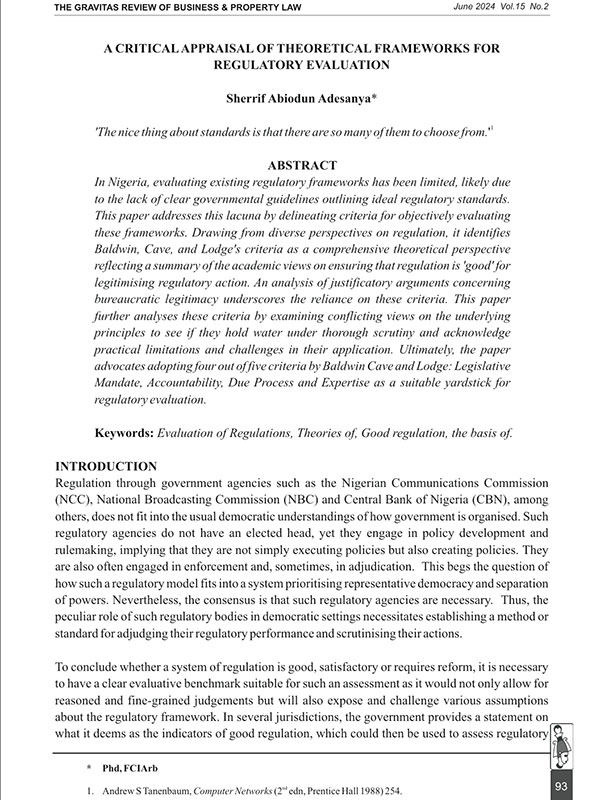
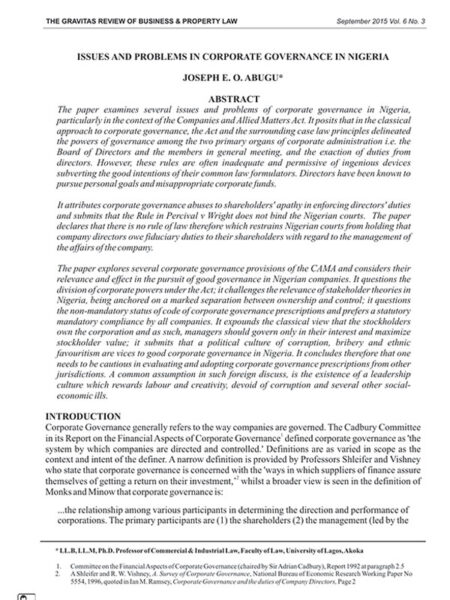
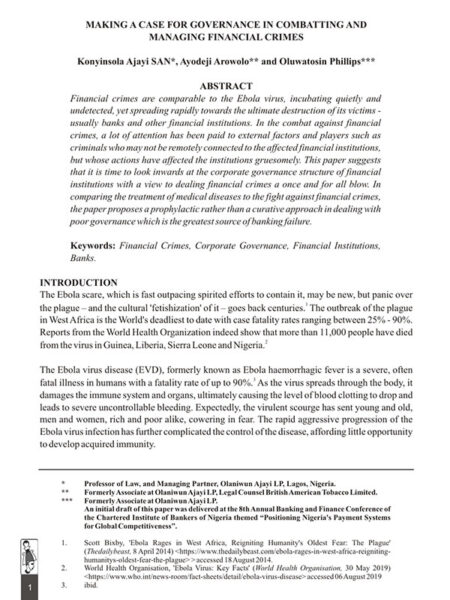
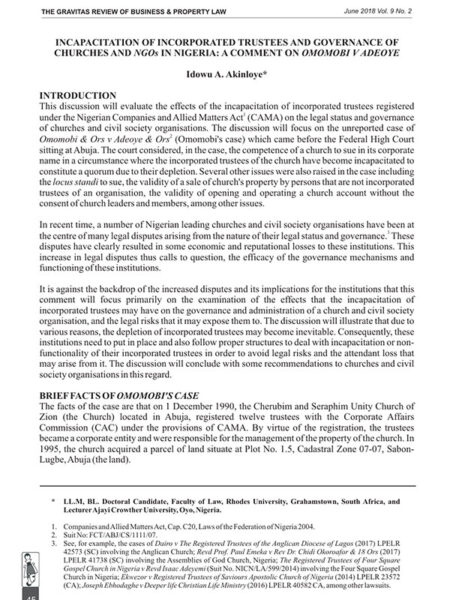
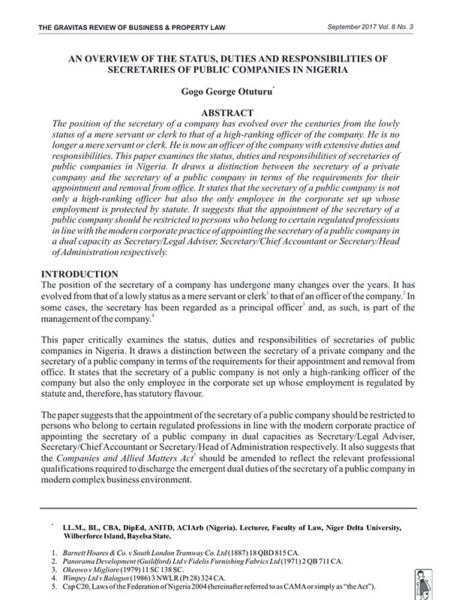


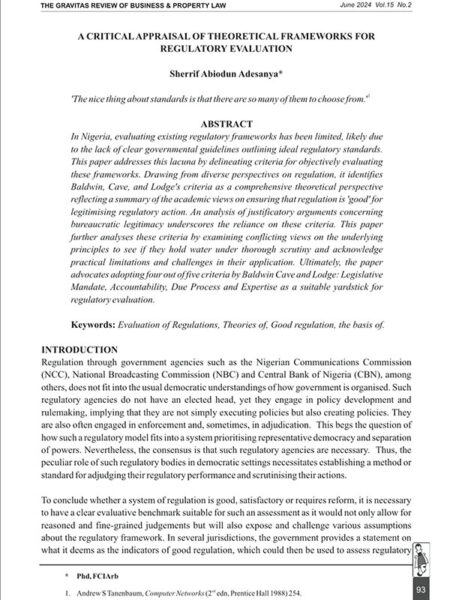
Reviews
There are no reviews yet.